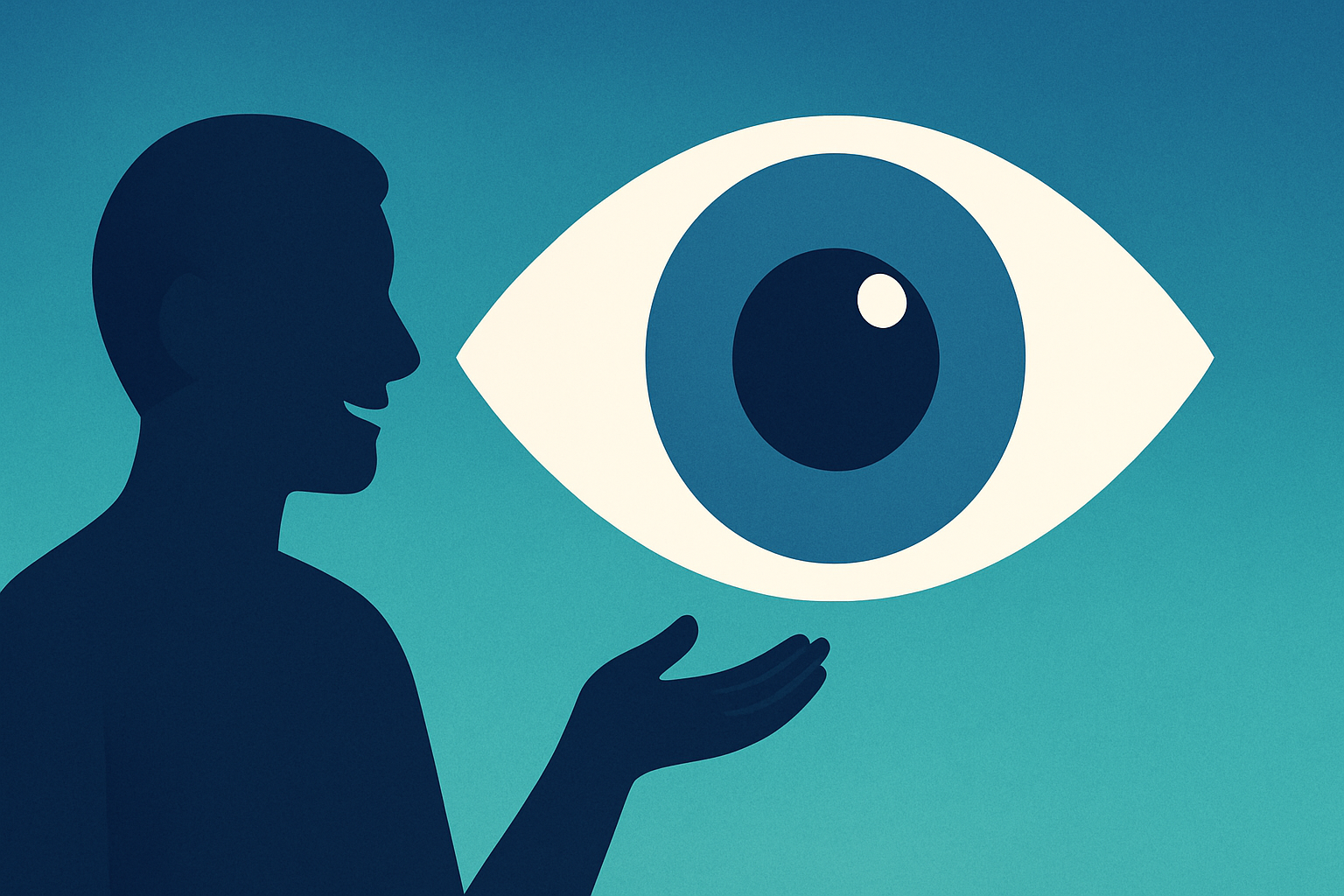The Single Most Important Mindset That Will Save Your Sight
Discover the mindset shift that separates those who preserve their sight from those who struggle with wishy-washy commitments.
You have probably heard the term "mindset," which is how you think about something—your mental approach to problem solving. After working with patients for over 30 years, I've observed key mindset patterns that lead to the best possible outcomes in vision recovery and preservation.
Here's what I've discovered: Folks who get the best long-term outcomes make clear, powerful decisions that align with their unwavering desire to save their sight.
But there's something even more specific that separates those who succeed from those who struggle. Let me share the single most important factor I've witnessed that drives success in vision recovery and preservation.
The Power of Decisive Action
The patients who achieve the most remarkable results—those who not only recover vision but preserve it long-term—share one crucial characteristic: they have a very decisive nature.
This doesn't mean they make rash decisions without consideration. Rather, it means they take time to evaluate their options, gather information, and then make strong, deliberate, definitive decisions to invest in their vision and prioritize themselves.
These successful patients understand that preserving their sight isn't just about seeing better—it's about having the life they want, supporting the people they love, and maintaining their independence and quality of life.
What Decisive Decision-Making Looks Like
When I say "decisive," I'm talking about patients who avoid the "maybe I'll try this, maybe I won't" mentality. They don't remain wishy-washy about their commitment to vision health. Instead, they follow a clear process:
1. They Make the Big Decision
First, they make a fundamental choice: "I am going to do everything in my power to recover and preserve my vision." This isn't a half-hearted commitment—it's a firm decision that their vision recovery and preservation will be of utmost importance and very high priority in their life.
2. They Take Deliberate Action
Once they've made this overarching decision, they follow it up with deliberate, actionable steps. This means implementing a comprehensive holistic ophthalmic strategy on a consistent daily basis, which might include:
- Taking prescribed supplements religiously
- Using alternating current stimulation (ACS) if applicable
- Performing eye exercises daily
- Getting regular acupuncture treatments
- Prioritizing quality sleep
- Following a vision-supporting diet
- Engaging in appropriate exercise
- Continuously educating themselves about vision health
3. They Commit to Consistency
Here's where many people falter: they start strong but lack the consistency needed for long-term success. Decisive patients understand that recovery and preservation happen through daily choices that support their big decision.
Every day, they choose to:
- Take their supplements
- Use their recommended treatments
- Do their eye exercises
- Spend 10-15 minutes researching and learning about vision health
- Practice meditation and mindfulness to connect with their body's needs
- Make dietary choices that support their vision
The Opposite: Why Wishy-Washy Thinking Fails
I've also observed the opposite pattern in patients who struggle to achieve lasting results. These individuals are characterized by:
- Hesitation and uncertainty: "Maybe I'm in, maybe I'm not"
- Starting and stopping: Beginning treatment enthusiastically but then abandoning it when initial motivation wanes
- Lack of clear commitment: Not being firm about their decision-making process
- Inconsistent action: Sporadic implementation of recommended strategies
This approach simply doesn't work for vision preservation. The biological processes involved in vision recovery and the prevention of further deterioration require consistent, sustained effort over time.
Why Consistency Creates Measurable Results
When patients make firm decisions and commit to consistent action, they create what I call "better vision habits." These habits become the foundation for long-term vision preservation because:
- Compound Effects: Small daily actions compound over time, creating significant improvements
- Biological Consistency: The eye and visual system respond better to consistent stimulation and support
- Mental Reinforcement: Regular action reinforces the original decision, making it easier to maintain
- Measurable Progress: Consistent patients can track their improvements, which motivates continued action
Where Are You in Your Decision-Making Process?
Take a moment to honestly assess where you currently stand:
-
Are you just getting started? If so, this is the perfect time to make a clear, decisive commitment to your vision health.
-
Have you drifted from your original decision? Many people start strong but gradually lose focus. The good news is that you can always get back on track—but it requires a renewed commitment to decisive action.
-
Are you stuck in wishy-washy thinking? If you find yourself perpetually on the fence, it's time to make a definitive choice.
Making Your Decision Today
I encourage you to make a decision today—either one way or another:
-
Option 1: Decide that you're not going to worry about your vision anymore. You'll stop stressing about it, won't implement any special strategies, and will simply leave your vision health to nature.
-
Option 2: Decide that preserving your vision is important enough to embark on this journey toward long-term vision preservation. Commit to making this pilgrimage a high priority in your life.
Both options are valid, but you must choose one. The middle ground—the maybe-I-will, maybe-I-won't approach—is where hope goes to die.
The Path Forward
If you choose Option 2, remember that this decision is just the beginning. Your success will be determined by your ability to follow through with consistent, daily actions that support your vision health goals.
This means developing systems and habits that make it easy to:
- Take your supplements at the same time each day
- Schedule and keep your treatment appointments
- Dedicate time to vision exercises and education
- Make dietary choices that support your eye health
- Prioritize sleep and stress management
Conclusion
After three decades of working with patients, I can tell you with certainty that mindset matters enormously in vision recovery and preservation. The single most important factor isn't your age, your diagnosis, or even your current level of vision loss—it's your ability to make decisive commitments and follow through with consistent action.
Your vision is worth fighting for. The question is: are you ready to make the decision and take the decisive action necessary to preserve it?
The choice is yours. Make it today.



